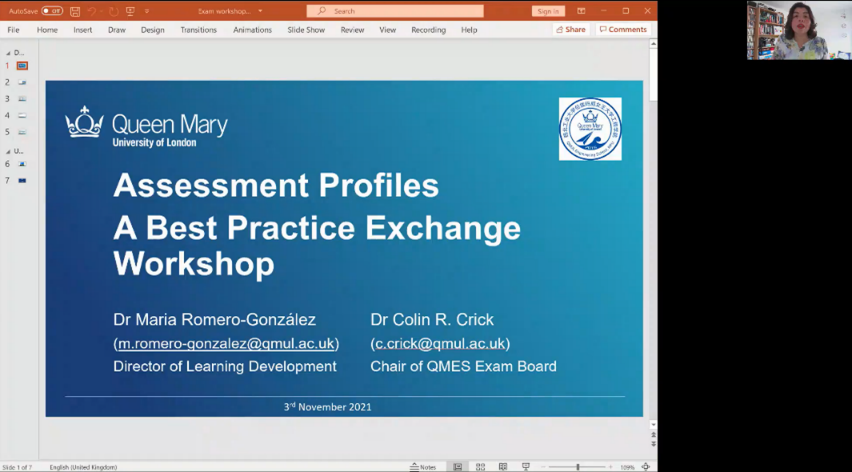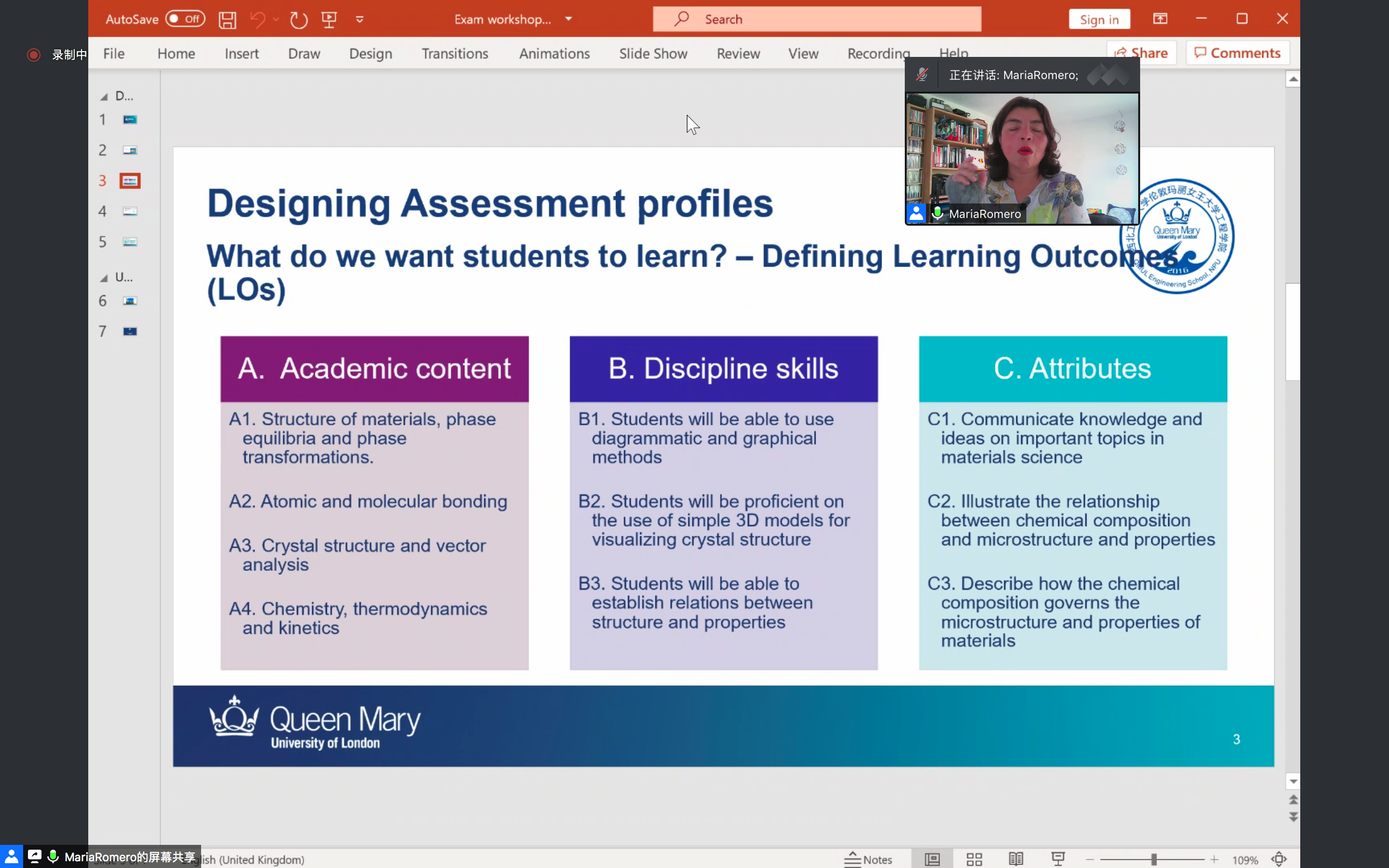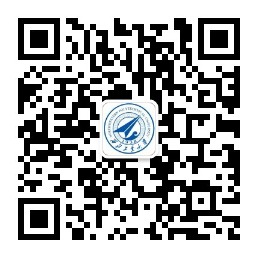On the evening of November 3, 2021, QMES held an online midterm teaching meeting and a seminar on the assessment and review of scientifically planning modules, and invited all lecturers to conduct in-depth discussions around the assessment and review of scientifically planning modules, so as to improve the quality of the modules and to enhance the professional knowledge and ability of students. This meeting was co-chaired by Fan Xiaoli, Vice Dean in charge of teaching affairs of QMES, Maria Romero-Gonzalez, Principal of Teaching and Development Office of QMES, and Colin Crick, Director of the Examination Committee of QMES.

Maria and Colin first expressed their gratitude to all the participants for their arrival, introduced this seminar, and said that the quality supervision of modules assessment was an important part in teaching management.Colin introduced in detail the significance, rules, procedures, and the timeline of each stage of the module assessment and review system, emphasized the importance of the scrutinisation system in ensuring the teaching quality, and specifically pointed out the role of the system in improving teaching exchange and ensuring teaching quality.Subsequently, Maria shared her experience on how to scientifically plan the teaching content and progress, assessment method, content, proportion and so on.

Finally, Fan Xiaoli thanked Colin and Maria for their sharing, summarized and affirmed the importance of the scruinisation system.At the same time, she also thanked all lecturers of QMES for their support and understanding of the difficulties that may be encountered during the process of implementing the system.
The scrutinisation system was introduced into QMES by QMUL, which is divided into two parts: internal scrutinisation within the school and external scrutinisation by National Academic scrutinisation Institutions. QMES entrusts off-campus examiners to review the assessment mode and test papers of all modules, and organize an examination committee at the end of each semester to review the scores of each module and randomly select test papers for verification, which has become an important part of monitoring and ensuring the teaching quality of QMES. Furthermore, joint educational institutions can provide a very good platform for lecturers from both NPU and QMUL, while both sides can learn from and exchange with each other by means of this platform. Through sharing and exchanging, this seminar has further clarified the new module assessment system, promoted the continuous improvement of the module scrutinisation system of QMES, as well as refined and improved the teaching system of QMES at last.

